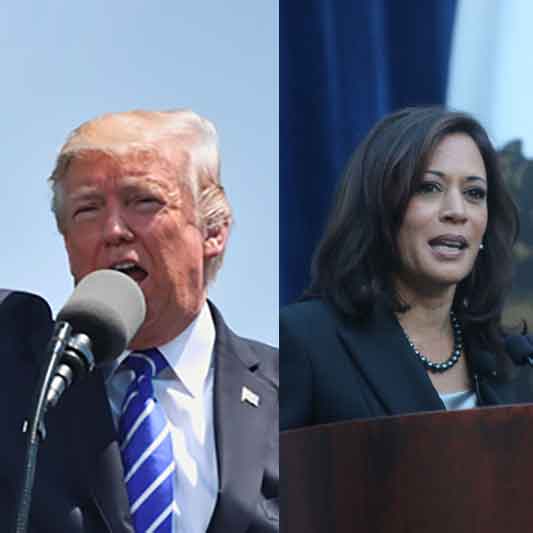Bill Maher, the host of HBO’s “Real Time with Bill Maher,” has made a bold prediction about the 2024 presidential election. He firmly believes that former President Donald Trump will not win. His assertion comes at a time when many Americans are feeling anxious about the impending election, and recent polls suggest a close contest between Trump and Vice President Kamala Harris.
In a recent episode of his show, Maher surprised his panelists, which included Israeli historian Yuval Noah Harari, writer Fran Lebowitz, and political consultant Ian Bremmer, with his certainty about the election outcome.
“No, not at all,” Maher responded when asked if he was concerned about the election. “Yeah, no, no, no, he’s definitely going to lose. You just feel it.”
However, Maher’s confidence contrasts sharply with the worries expressed by a significant number of Americans. A Yahoo News/YouGov poll conducted from September 11-13, 2024, found that 67% of Americans are anxious about the upcoming election, with 31% feeling very anxious and 36% somewhat anxious.
The sources of this anxiety are diverse, with 64% of respondents expressing concern about the impact of the election on the economy, 60% fearing potential political violence, and 48% worrying that the election results might not be accepted. Additionally, 39% are afraid the election could be stolen.
Recent polling data, however, suggests a much tighter race than Maher anticipates. A New York Times/Siena College poll conducted from September 3-6, 2024, showed Trump leading Harris nationally among likely voters by a narrow margin of 48% to 47%. Moreover, the race remains close in key battleground states, with both candidates having a chance to secure victory.
In battleground states such as Arizona, Georgia, and North Carolina, Trump has shown strength. The New York Times/Siena College polls indicated that Trump is leading Harris by 50% to 45% in Arizona, and holds a 4-point lead in Georgia and a 3-point lead in North Carolina.
Nonetheless, Harris holds a slight lead in other critical swing states. The same polling organization found Harris leading Trump by 4 percentage points among likely voters in Wisconsin, Pennsylvania, and Michigan.
The economy remains the top issue for voters, with a Pew Research Center survey finding that 81% of registered voters consider it very important to their vote. Other key issues for Harris supporters include healthcare, Supreme Court appointments, and abortion, while Trump supporters prioritize immigration and violent crime alongside the economy.
Confidence in election integrity has also become a dividing issue along party lines. A Gallup poll revealed a record-high 56-percentage-point gap between Democrats and Republicans in their confidence that votes will be accurately cast and counted. While 84% of Democrats express faith in the accuracy of the vote, only 28% of Republicans share this confidence.
Maher, who has previously identified himself as a “Trump alarmist,” argues that his past skepticism lends him credibility in making this prediction. “I’ve already put my marker down on that,” Maher declared, adding that even if the polls show a close race up until election day, he remains certain of the outcome.
However, GOP pollster Kristen Soltis Anderson disputes Maher’s certainty, pointing out that Trump remains competitive in battleground states despite voters being familiar with his character and policies.
As the election draws near, both campaigns are intensifying their efforts in key swing states, recognizing the potential for another closely contested and potentially disputed outcome. With only a few weeks left in what is shaping up to be the shortest presidential election cycle in modern American history, both Harris and Trump face limited opportunities to sway voters.
The 2024 presidential election continues to be a topic of intense interest and concern for many Americans. The outcome is likely to significantly impact the nation’s future direction on key issues such as the economy, healthcare, and foreign policy.

